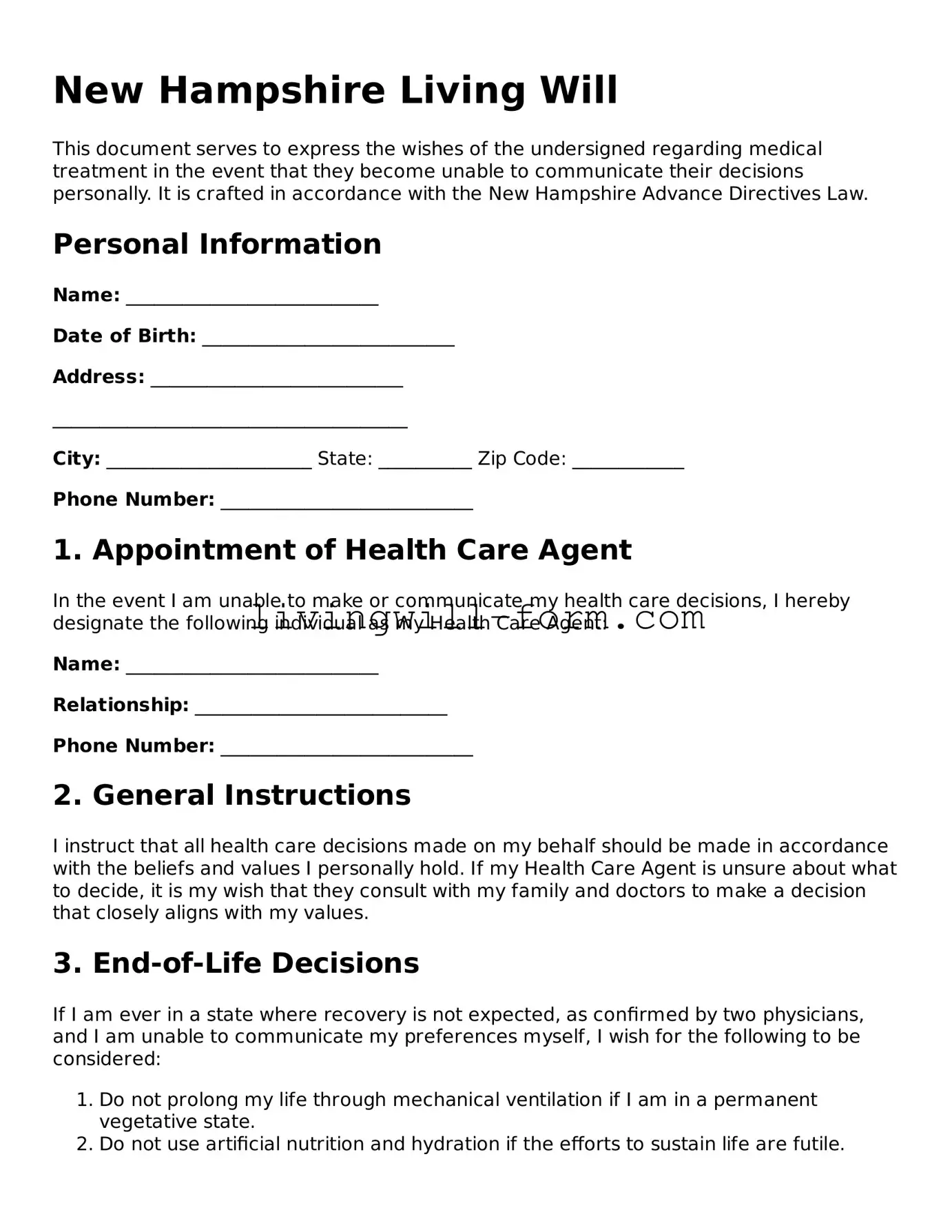Attorney-Verified New Hampshire Living Will Template
A New Hampshire Living Will form is a legal document that allows individuals to outline their preferences for medical treatment in the event they become unable to make decisions for themselves. This form serves as a guide for healthcare providers and loved ones, ensuring that the care given aligns with the person's wishes. It becomes a crucial tool in planning for future health care, addressing various scenarios, including end-of-life care and life-sustaining treatment preferences.
Access This Living Will

Attorney-Verified New Hampshire Living Will Template
Access This Living Will

Access This Living Will
or
▼ Living Will PDF
Finish the form and move forward
Edit and finish your Living Will online fast.